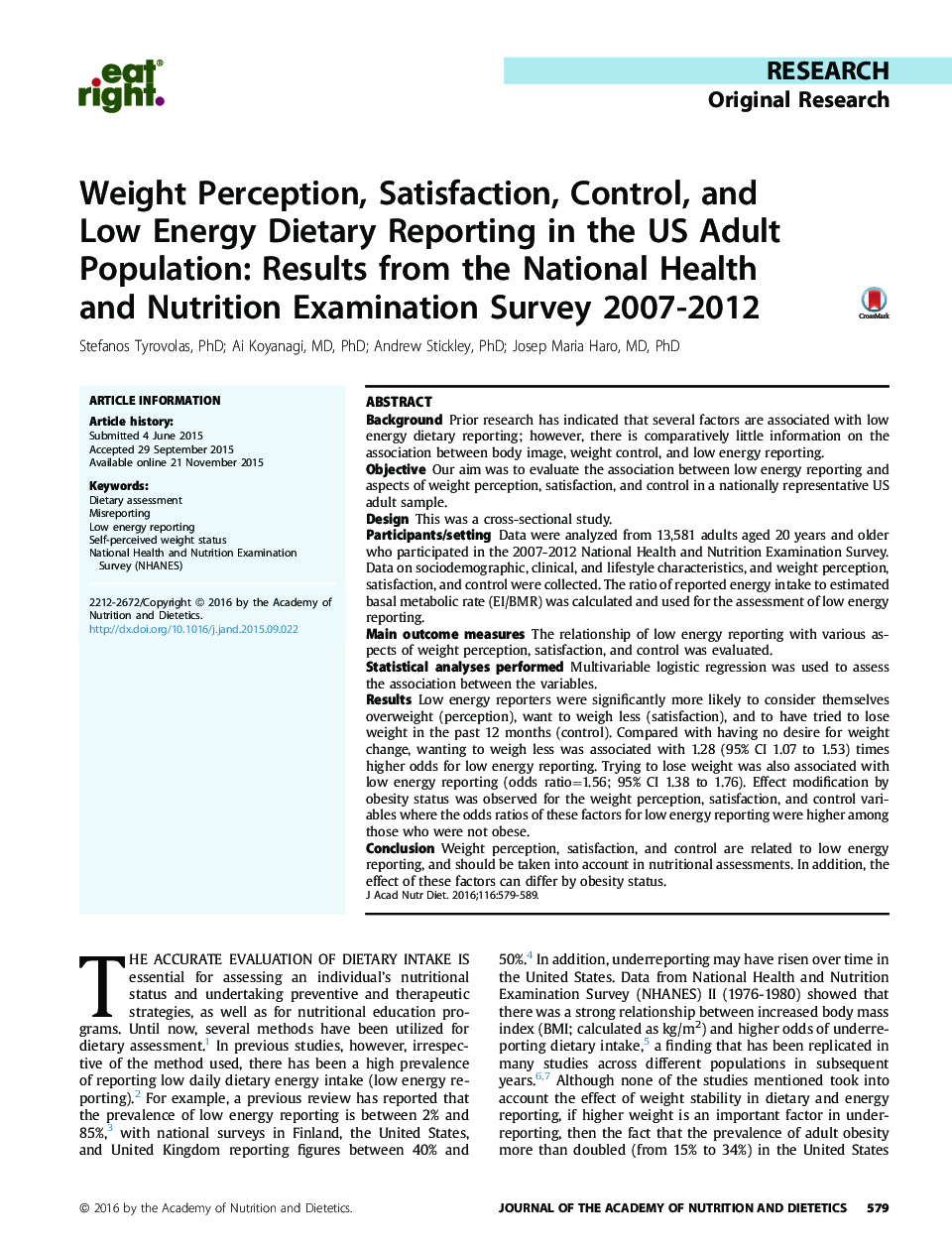| کد مقاله | کد نشریه | سال انتشار | مقاله انگلیسی | نسخه تمام متن |
|---|---|---|---|---|
| 5869354 | 1564038 | 2016 | 11 صفحه PDF | دانلود رایگان |
BackgroundPrior research has indicated that several factors are associated with low energy dietary reporting; however, there is comparatively little information on the association between body image, weight control, and low energy reporting.ObjectiveOur aim was to evaluate the association between low energy reporting and aspects of weight perception, satisfaction, and control in a nationally representative US adult sample.DesignThis was a cross-sectional study.Participants/settingData were analyzed from 13,581 adults aged 20 years and older who participated in the 2007-2012 National Health and Nutrition Examination Survey. Data on sociodemographic, clinical, and lifestyle characteristics, and weight perception, satisfaction, and control were collected. The ratio of reported energy intake to estimated basal metabolic rate (EI/BMR) was calculated and used for the assessment of low energy reporting.Main outcome measuresThe relationship of low energy reporting with various aspects of weight perception, satisfaction, and control was evaluated.Statistical analyses performedMultivariable logistic regression was used to assess the association between the variables.ResultsLow energy reporters were significantly more likely to consider themselves overweight (perception), want to weigh less (satisfaction), and to have tried to lose weight in the past 12 months (control). Compared with having no desire for weight change, wanting to weigh less was associated with 1.28 (95% CI 1.07 to 1.53) times higher odds for low energy reporting. Trying to lose weight was also associated with low energy reporting (odds ratio=1.56; 95% CI 1.38 to 1.76). Effect modification by obesity status was observed for the weight perception, satisfaction, and control variables where the odds ratios of these factors for low energy reporting were higher among those who were not obese.ConclusionWeight perception, satisfaction, and control are related to low energy reporting, and should be taken into account in nutritional assessments. In addition, the effect of these factors can differ by obesity status.
Journal: Journal of the Academy of Nutrition and Dietetics - Volume 116, Issue 4, April 2016, Pages 579-589
